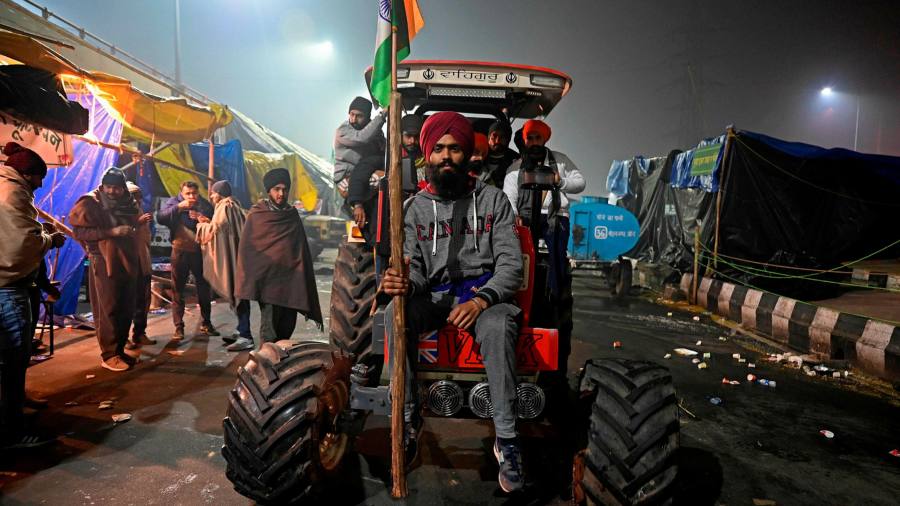[ad_1]
New Delhi has warned Twitter to re-block access to accounts on its platform that had used a hashtag connected to a farmers’ protest, or to face penalties under Indian law.
The social media giant originally complied with a government request on Monday to suspend access to the Twitter accounts in India, including those of The Caravan, an influential magazine, as well as politicians from opposition parties.
The request was made under Section 69A of the Information Technology act, which allows the government to direct intermediaries such as social media companies to block accounts “in the interest of sovereignty and integrity of Indiaâ€.
The order targeted more than 200 accounts that had tweeted using the hashtag #modiplanningfarmersgenocide, aimed at New Delhi’s agriculture reforms. Thousands of farmers have been camping on the outskirts of the city for more than two months protesting against the new legislation, which aims to promote greater private sector competition.
But Twitter unblocked the accounts following uproar from free speech proponents. Critics viewed the measure as a way to attack prominent critics through the lens of protecting public safety.
This lead the government to issue a fresh warning to the company on Tuesday, according to a spokesperson at the Ministry of Electronics & Information Technology.
“The restoration [of those accounts] is in violation of the judicial process,†said a ministry spokesman to the Financial Times, adding that Twitter was “not following the law of the landâ€.
Under Section 69A, intermediaries that fail to comply with government directives may be “punished with an imprisonment for a term which may extend to seven years and shall also be liable to fine[s].â€
Twitter declined to comment.
The stand-off comes as social media platforms have faced increasing pressure from governments in the Asia-Pacific region to censor content from dissidents, or to overlook hate speech coming from the governments themselves. Last year Facebook failed to ban a politician from the ruling party of Narendra Modi, India’s prime minister, despite his breaching the platform’s rules, according to the Wall Street Journal.
The Twitter case has placed a spotlight on the broad powers of Indian authorities to regulate the internet. “It’s one thing to ban a set of tweets that are potentially or allegedly illegal, it’s another . . . to ban an account itself,†said Nikhil Pahwa, a digital rights activist and founder of digital policy news site MediaNama.
Criticism has also been made of the “strict confidentiality†that surrounds government requests to block accounts. “The detailed rationale for blocking information on social media must be accessible to the public,†said Vivan Sharan, partner at policy research and advocacy firm Koan Advisory Group.
Mr Pahwa added that a showdown between Twitter and Delhi could lay the grounds for a court case on Section 69A, which the supreme court previously ruled as constitutional in 2015.
The farmers’ protests have intensified with clashes in the capital last week leaving one protester dead and hundreds of police injured. Support for the farmers on social media from celebrities including Rihanna and Greta Thunberg was met by a rebuke from the Indian government.
On Wednesday, the Indian Ministry of External Affairs said in a statement that “the temptation of sensationalist social media hashtags and comments . . . [was] neither accurate nor responsible.â€
[ad_2]
Source link





